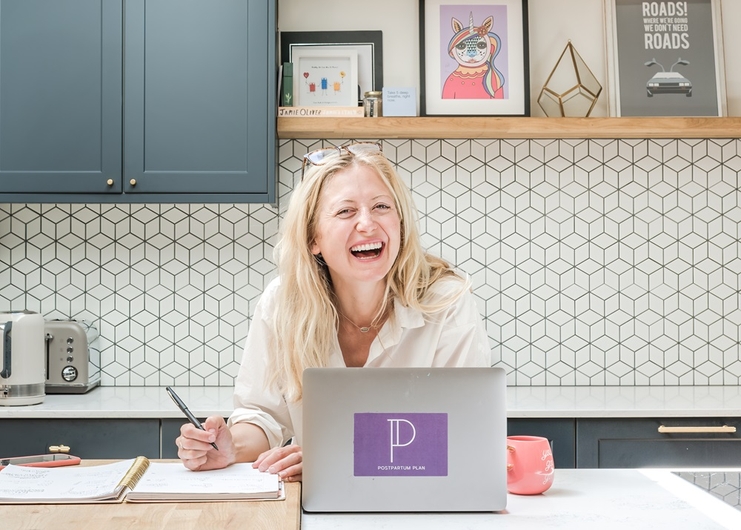Posted By: Amy Tubb
18th July 2024
2 minute read

Many entrepreneurs say they create what they needed. This is definitely true of my story from failure to Founder and I hope that this story inspires people to see what I think is missing in our society and how we can bridge that gap for new parents.
I did everything society told me to do; booked NCT classes, did the hypnobirthing, made a birth plan.
And then, of course, my birth did not go to plan.
I was left with a baby in NICU for 72 hours and a long road to recovery. I suffered with post-traumatic stress disorder (PTSD), intrusive thoughts, healthy anxiety, and insomnia. Physically, I was also dealing with diastasis recti (separation of my abdominal muscles) and pelvic floor issues. Top this all off with a general feeling that I had failed as a parent.
I had not failed; society had failed me.
I poured all my love and care into my baby and what I needed was to feel supported and held with the right resources to name and deal with my symptoms. But no-one talked about diastasis recti, birth trauma or the hormonal changes in me that caused my downward spiral.
Unresolved mental and physical challenges can have a significant impact on parents re-entering the workforce.
Research suggests that any parent who suffered complications during pregnancy and birth is vulnerable when they return to work unless appropriate support is provided. This was certainly true in my case.
I quit my job after a full nervous breakdown.
In 2021, during the height of the pandemic, I sought to revolutionise postnatal care to save other new parents repeating my experience. Postpartum Plan, my second baby, was born!
Postpartum Plan provides an online resource for expectant and new parents, regardless of gender or location, offering emotional and physical support, community and recovery from birth to back to work and beyond.
In three short years, we have achieved a lot. We are now an employee benefit in seven companies, including Fieldfisher, Lansons and Hertility, have been awarded top Start Ups for 2024 and we’re now supporting the Maternal Mental Health Alliance to increase awareness of perinatal mental health in the workplace. It has been an amazing journey and one that ultimately healed my birth trauma as I used my experience to help others.
Become an Agent of Change and help revolutionise postnatal care for new parents!
For more information about Postpartum Plan, visit postpartumplan.co.uk.